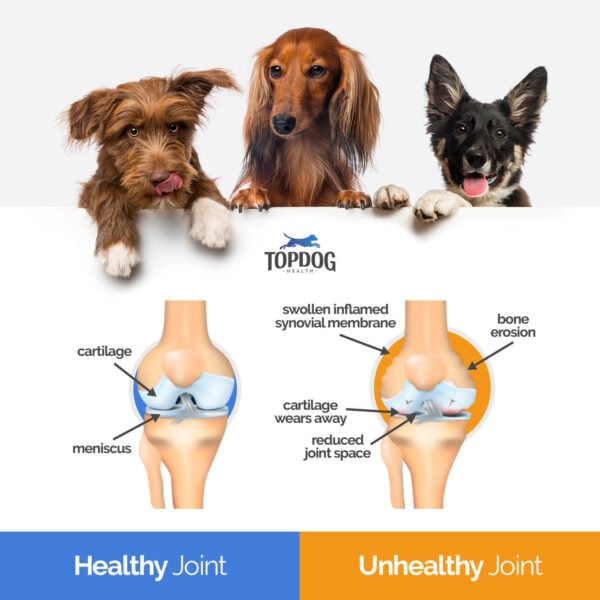Handy Info For Choosing Best Vitamins For Dogs
Handy Info For Choosing Best Vitamins For Dogs
Blog Article
Probiotics Are A Great Option For Animals And Cats Suffering From Allergies.
Probiotics play a significant function in the treatment and alleviation of skin allergies in dogs and cats. The beneficial bacteria help to maintain the health of the gut-microbiome that, consequently, aids in the immune system and the skin. Probiotics can help treat allergic skin conditions in pets:
Immune System Regulation
Balanced Immune Response:
Function: They regulate your immune system by increasing the amount of beneficial bacteria, while reducing the harmful ones.
Benefits An immune system that is healthy helps reduce hypersensitivity reactions, which can lead to skin allergies. This helps reduce the intensity, and frequency of allergic reactions.
Inflammation Reduction
Anti-inflammatory Effects:
Function: Certain probiotic strains are able to produce anti-inflammatory chemicals and regulate the body's inflammatory response.
Benefits: Probiotics reduce the inflammation in the system. This helps alleviate inflammation and itching caused by skin allergies.
Gut-Skin Axis
Gut Health Improvement:
Function The gut-skin axis is related to the connection between gut health and skin health. Probiotics aid in improving gut barrier health and overall digestion function.
Benefits: A healthy gastrointestinal tract is able to stop the leakage into the bloodstream of allergens as well as toxic substances that may trigger skin reactions. This may result in a decrease in skin allergy symptoms.
Strengthening Skin Barrier
The function of the skin barrier is enhanced:
Function: Probiotics can influence the production of ceramides and other lipids that are crucial for maintaining a healthy skin barrier.
Benefits: A stronger skin barrier can protect against environmental allergens and pathogens, reducing the incidence of skin irritations as well as allergic reactions.
Allergy Symptom Management
The Symptom Relief
Function: Probiotics are able to help with symptoms by regulating the release of histamines, as well and other chemicals that are involved in allergic reactions.
Benefits: This product may help reduce itching, inflammation, and discomfort that is related to skin allergies.
A heightened diversity of microbes
Increased Microbial Variety:
Function: Probiotics increase the diversity of the gut microbiome, that is crucial for a balanced immune response.
Benefits In preventing an overgrowth of harmful bacteria that could trigger allergies, a varied microbiome can better help your overall well-being.
Specific Probiotic strains
Lactobacillus, Bifidobacterium and other common probiotics have been proven to aid in the treatment of skin allergies.
LactobacillusrhamnosusGG: This strain is recognized for its ability to lower allergy symptoms and improve the health of your gut.
Bifidobacterium: Aids in the reduction of inflammation and improvement of immune response.
Use and Considerations
Dosage and Administration: The proper dosage of probiotics depends on the pet's size as well as weight and health requirements. The label on the product should be followed or the recommendations of your vet.
Formulations Probiotics are available in a variety of forms for pets like powders, capsules, and chews. Selecting a top-quality pet-specific product is essential for safety and effectiveness.
Monitoring and Side Effects. Probiotics are safe for pets, but you should monitor them closely to determine if they are causing any adverse reactions. By starting with a low dose and increasing it gradually, you can minimize any negative effects.
You can also read our conclusion.
Probiotics help dogs and cat owners control their allergies to skin by controlling immune function by reducing irritation, enhancing the barrier to skin and improving the health of the gut. Regular usage can lead to an improvement in allergy symptoms. Probiotics also aid in maintaining better skin health for pets and an improved quality of their life. Take a look at the best kidney failure in dogs for blog advice including pet dental supplements, pet supplements for pets with food sensitivities, pet supplements for show dogs and cats, pet supplements for pets with medical conditions, organic pet supplements, organic pet supplements, natural cat supplements, pet urinary tract supplements and more.
Astragalus Is A Remedy For Kidney Failure In Both Dogs And Cats.
Astragalus, a traditional Chinese herb, could be able to help manage kidney disease in dogs as well as cats, due to its immunomodulating and anti-inflammatory properties. Astragalus is a powerful herb which can be used to treat kidney failure in cats and dogs. Its anti-inflammatory, antioxidant and immunomodulatory properties are beneficial.
Anti-inflammatory properties
Reduce inflammation
Astragalus has anti-inflammatory compounds like saponins.
Benefits. Reducing inflammation of the kidneys can help reduce the symptoms associated with kidney damage.
Antioxidant Effects
Reduction of Oxidative Stress
Astragalus is a natural antioxidant that neutralizes free-radicals that can cause cellular damages.
Benefits: By reducing oxidative damage, Astragalus helps improve kidney function. It also helps slow disease progression.
Immunomodulation
Immune System Support:
Astragalus improves immunity, thereby enhancing its capacity to fight off infections and decreasing autoimmunity.
Benefits: An immune system that's well-balanced can reduce the risk of infections and allergic reactions, which could result in kidney damage for some pets.
Improved Kidney Function
Enhancement Glomerular Filtration :
Astragalus may enhance kidney function. This is because it improves the speed of glomerular filtering, also known as the rate at which the kidneys eliminate blood.
Benefits: A more efficient filtration process will allow kidneys to remove waste more effectively, and reduce the signs of kidney failure. Additionally, it can improve overall health.
Anti-fibrotic effects
Prevention of Kidney Cell Fibrosis
The function: Astragalus has been shown to have anti-fibrotic properties, preventing the formation of scar tissue within the kidneys.
Benefits - Reducing the fibrosis will help maintain the health of kidney tissue. This is critical for preserving kidney function.
Cardiovascular Support
Support for Cardiovascular Health:
Effect: Astragalus can help improve the health of your cardiovascular system by promoting healthy blood pressure and heart function.
Benefits: A healthier cardiovascular health could reduce the stress on kidneys and improve overall well-being. This is crucial when your pet suffers from kidney failure.
Diuretic Effects
Urine Promotion of Flow:
Effect: Astragalus may have mild diuretic effects that help to improve the flow of urine and the elimination of waste materials.
Benefits: Improved urine flow can help manage fluid balance, and also reduce the buildup of toxins in the body, thereby supporting kidney health.
Utilization and other factors
Dosage and Administration: The appropriate dosage of Astragalus is contingent on the health, size, and the weight of your pet. It is important to follow your veterinarian's instructions, because they can provide instructions on the right dosage and the best form to take for Astragalus.
To ensure the safety and effectiveness, use high-quality Astragalus supplements that have been tested and standardized. Specifically designed pet products are preferred.
Astragalus can cause gastrointestinal upset in some pets. If you start with a small dose and gradually increasing the dosage, you can minimize side negative effects. A veterinarian must monitor the pet regularly to determine the level of response and alter dosage if needed.
Conclusion
Astragalus is a good supplement to help manage kidney failure in cats and dogs. Its antioxidant, anti-inflammatory immune-modulatory and anti-fibrotic properties help support kidney function and overall health. Astragalus is an all-natural remedy that is used frequently under the direction and supervision by your vet to reduce the rate of progression of kidney disease, improve quality-of-life, and improve the overall well-being of your pet suffering from kidney failure. Take a look at the top moved here for best vitamins for dogs for website examples including pet digestive supplements, pet skin supplements, pet omega-6 supplements, pet supplements for pets with fear of death, pet arthritis supplements, pet wellbeing cushings care kit, pet whey protein supplements, pet hyaluronic acid supplements and more.
What Can Apple Cider Vinegar Be Utilized To Treat Yeast Infections In Dogs And Cats?
ACV is used as a treatment for yeast infection in dogs and cats. The acidity of ACV can trigger side effects and is not recommended without veterinary supervision. ACV can be used for treating yeast-related infections.
Antifungal Properties
Acidic Environment:
Function: ACV is acidic, with a pH typically between 2.5 and 3. This acidic pH may hinder yeast growth.
Benefits Utilizing ACV diluted ACV topically or adding it to the pet's bathwater may help lessen the overgrowth of yeast on the skin and in the ears.
Control of pH levels in the skin
Balancing Skin pH:
ACV can aid in balancing pH levels within the skin. This can help to maintain a healthy epidermis barrier and prevent yeast.
Benefits: Maintaining proper pH levels on the skin will help to prevent yeast infections, as well as improve overall skin health.
Anti-inflammatory effects
Reduce inflammation:
ACV is mildly anti-inflammatory.
Benefits - Lowering inflammation can help to alleviate symptoms like redness, irritation and discomfort that are common with yeast infections.
Support for Digestive Health
Internal Use:
ACV can improve digestion, and help balance gut bacteria when ingested.
Benefits Enhancing general immune function health, balance of microbial activity and gut health can help reduce yeast growth.
Considerations and Usage
Application to the skin: Mix the ACV in water (1 part ACV and 1-2 parts water is typical) and then spray or wash it on affected skin areas or ear canals. Avoid applying ACV directly on open skin wounds or other sensitive places.
In the event of considering using it internally, consult with a veterinarian first. ACV can be given to small children in small quantities and should be highly dilute (e.g. one teaspoon or tablespoon per cup water).
When applying ACV topically make sure to look out for signs of irritation and allergic reactions. Do not use it if any adverse reactions develop.
Consultation of Veterinarians Before making use of ACV in treating yeast infections on pets, consult a vet. They will be able to guide you on the correct dilution strategies as well as application methods and the risks associated to your pet.
Click here to view the complete article. Click here to view the full
Apple cider vinegar may have the potential to assist in treating yeast infections, it's important that its use be taken cautiously and under the supervision of a vet. ACV may have mild anti-inflammatory and antifungal properties due to the acidity of its nature. But, a proper dosage and careful application are essential to avoid irritation or adverse reactions. ACV should be used in conjunction with a complete treatment plan for yeast infections. View the most popular petz park examples for blog advice including pet urinary tract supplements, cushings disease natural treatment, pet supplements for pets with worms, pet bone supplements, pet supplements for pets with fear of shadows, petbarn, uti natural treament, pet multivitamins and more.